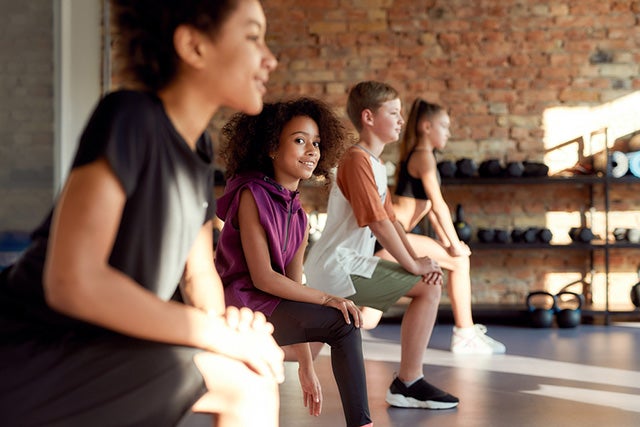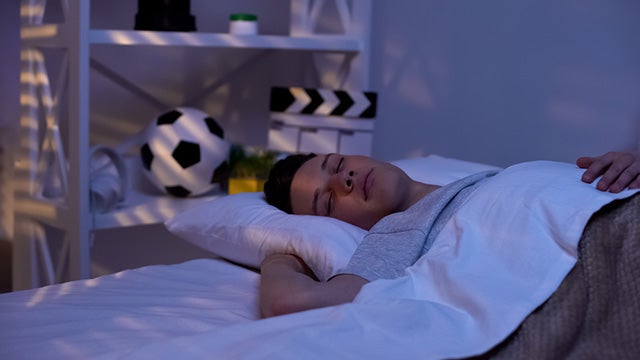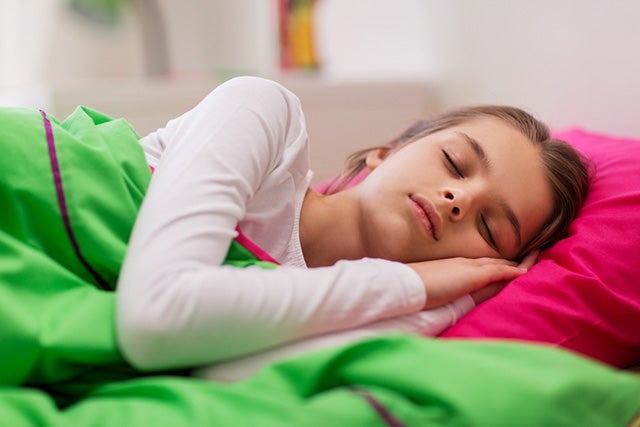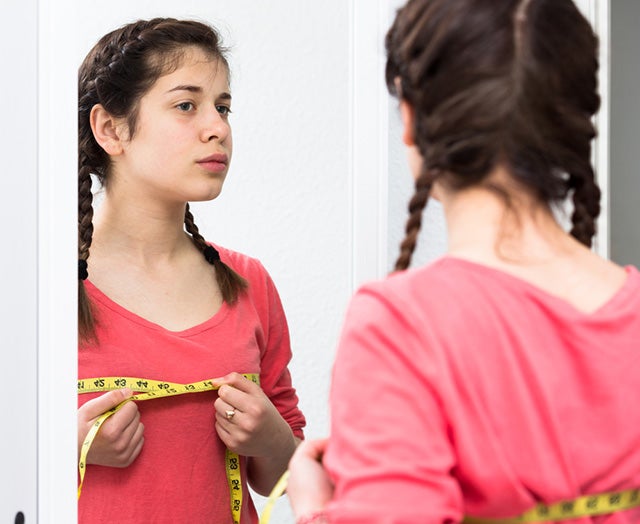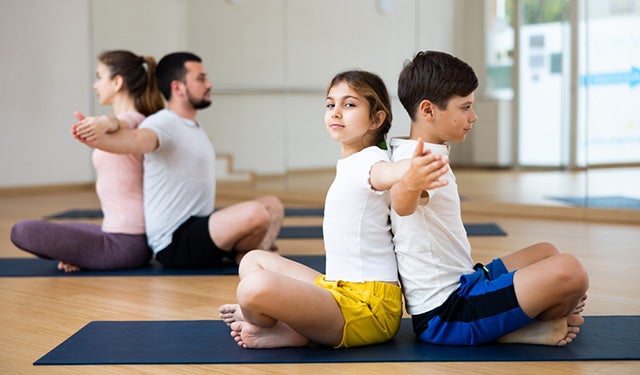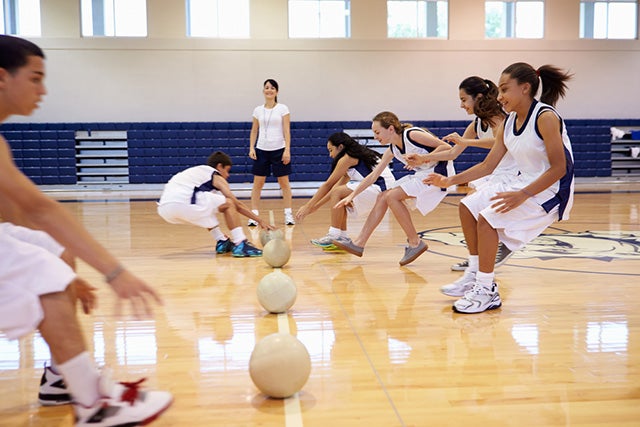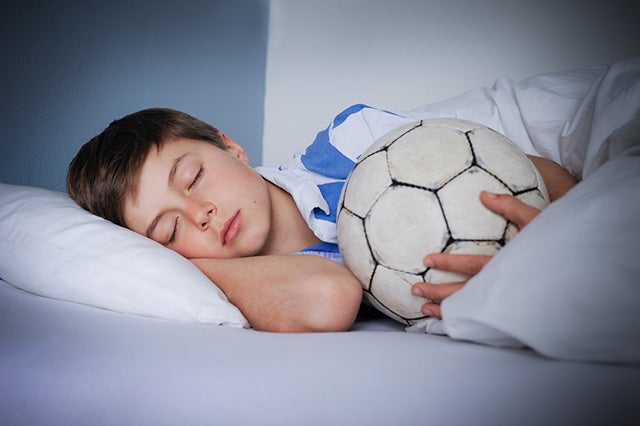Teenagers’ bodies and brains are going through a series of rapid developments that lasts well into their early to mid-20s. To top that off, they are becoming more and more socially and emotionally aware, creating exhausting mental states.
These physical and mental changes require rejuvenation and healing sleep, and exercise can be a key to helping your child get the rest their bodies need. Regular, purposeful movement and exercise is a meaningful way to create a healthier lifestyle for all ages, and it is especially important for our youth to take advantage of it.
How Many Hours of Sleep Does a Teenager Need?
Teenage senses are constantly being assaulted by the expectations of increasingly busy schedules, as well as in-your-face technology that takes the shape of phones and video games. Altogether these can create overwhelming situations that may feel impossible to get away from – and interrupt your child’s rest each night.
It is incredibly important that teenagers have the parental direction to help them navigate their responsibilities, including healthy screen use – such as having only set times for video gaming, and phones turned off at a set time each night.
Teenagers need 8 to 10 hours of sleep every night with studies supporting their optimal performances falling near 9.5 hours of uninterrupted rest. This may seem like a lot, but as mentioned above, teens are going through rapid mental and physical growth spurts and this is exhausting on the body. This is why it is so important to make sure each child has the opportunity to rest for at least this long sans screens and interruptions.
You might want to read this: The Relationship Between Teens and Sleep
Teenage Brain Development
The rational part of the teenage brain isn’t fully developed until their mid-20s, and they process their own actions and surroundings with emotion, rather than logic. This regularly creates overwhelming emotional responses, as well as the input they struggle to understand.
This is incredibly tiring. And when they sleep each night, the brain works to sort and compartmentalize emotions, memories, and information. For a teenager, this is A LOT to sort through.
As parents, we need to help them make connections between their actions, responses, and responsibilities so those pathways begin to develop and are recognized as their brain grows. Rest helps influence the connections being made, so they have more awareness of them when new situations related to impulsive thinking arises.
Teenage Physical Development
Although a teen may not be growing quite as quickly as they did when they were younger, their bodies are still going through an incredible amount of changes – many of which are related to hormones. Puberty and all the uncomfortable, new, and strange changes can be scary and even embarrassing for many teens. This is mentally tiring, as well as physically wearing.
Height and weight are also still changing, although at a slower rate. This contributes to physically tiring experiences as well as they grow and navigate new muscle use and a body that responds differently to familiar exercises and movements.
Teenagers and Exercise
For children and adults it is suggested to get a minimum of at least 30 minutes of moderate exercise a day. Moderate exercise could be a brisk walk, or even just mowing the lawn. This isn’t a lot of exercise overall, however, and it is also suggested to get at least 75 minutes of vigorous activity a week a week. Vigorous activity is defined by a heart rate range that varies depending on age.
For a 13 year old teenage boy, this range is 176 – 203 and reflects 50% to 85% of maximum heart rate.
Influencing a teenager to participate in more rigorous physical activity everyday helps improve circulation, oxygen distribution through the body, levels blood pressure, releases hormones to help deal with stressors, stimulates chemicals and proteins for healthy brain support, and even improves bone density – an important component for growing children.
How Exercise Helps Teens Sleep Longer and Deeper
Exercise also has some incredible results related to teenage sleep patterns. Studies have shown that for every hour of moderate to vigorous activity a teenager participates in a day, they will fall asleep on average 18 minutes earlier, sleep 10 minutes longer, and have a one percent greater sleep efficiency for that night.
This means their sleep is more restful and rejuvenating, and results in (which is no surprise) students performing mentally and physically better the next day. And not just a little bit.
Athletes measurably performed better than their peers, had more strength, and more longevity to perform. Mentally, they also outpaced students with less sleep in the following: working short and long term memory, impulse control, emotional control, and organizational skills.
You might want to check this: The Best Bed for Teens
Wrapping It Up
The proper amount of sleep, and high quality sleep is crucial for teenager growth and development. It allows teens to sleep longer and deeper, and contributes directly to physical and mental successes the following day.
It also allows the body to do its job better while they rest, helping to create healthy pathways for future brain and body growth. As parents we need to influence good sleep habits and proper exercise for a better all around experience.
Photo credit: BAZA Production/Shutterstock; Motortion Films/Shutterstock; SergiyN/Shutterstock; Ground Picture/Shutterstock; BearFotos/Shutterstock; granata68/Shutterstock; Monkey Business Images/Shutterstock
